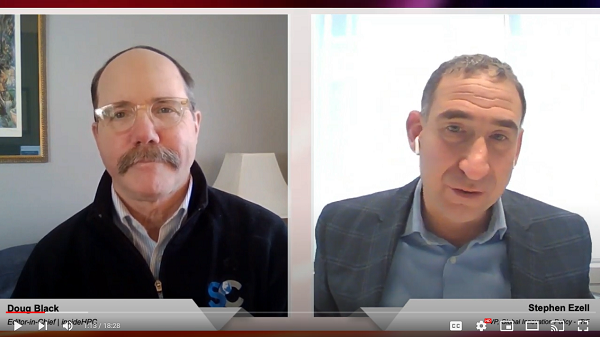In this interview on behalf of HPC industry analyst firm Hyperion Research, we spoke with Stephen Ezell, VP for global innovation policy at the Washington, DC-based Information Technology and Innovation Foundation (ITIF).
Ezell, who also is director of ITIF’s Center for Life Sciences Innovation and leader of the Global Trade and Innovation Policy Alliance, delivered a presentation at a recent Hyperion event in Washington on improving U.S. competitiveness in the global HPC and AI markets. At the core of his message is the value of supercomputing and AI to driving discovery and innovation across a range of high value fields, including life sciences, climate studies, industrial advancements and national security.
“HPC really represents a foundational technology,” Ezell said. “An enterprise’s and industries’ ability to leverage this technology – to support innovation, to drive productivity, to achieve energy efficiency – really gives a critical first mover advantage. And so why it matters at a national level that a country has HPC resources is that it gives all the industries in a country that kind of first mover advantage.”
As we enter supercomputing’s exascale era, global HPC leadership is “up for grabs,” according to Ezell, and in several ways the U.S. has relinquished leadership in the development of “feeder streams” that will supply the country’s supercomputing industry in future decades. To address this, Ezell outlines several recommended policies and initiatives the U.S. should take in the face of increasing global HPC competition.
“What we’re seeing,” Ezell said, “is if we don’t attend to our leading position, we can lose it.”




